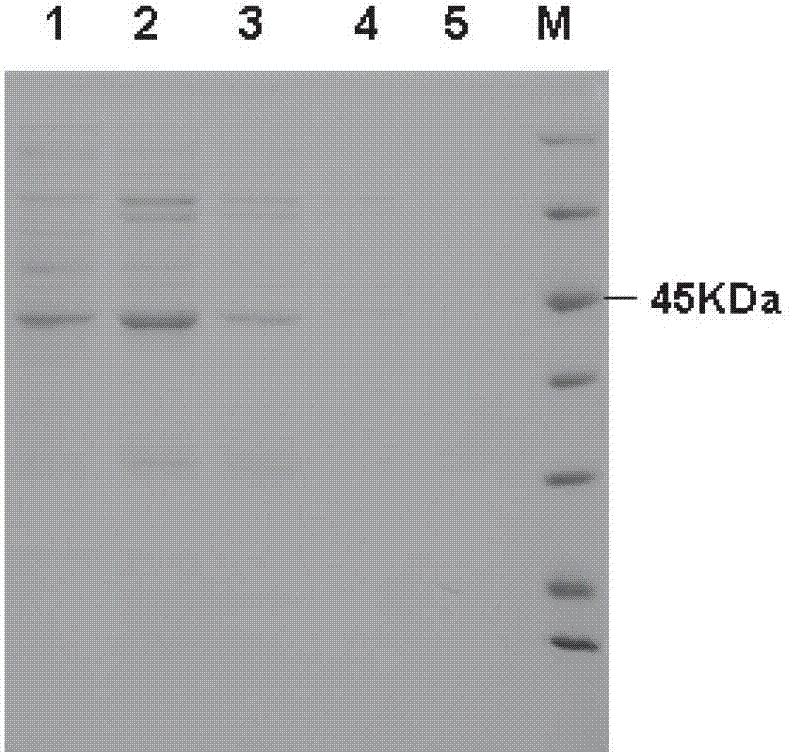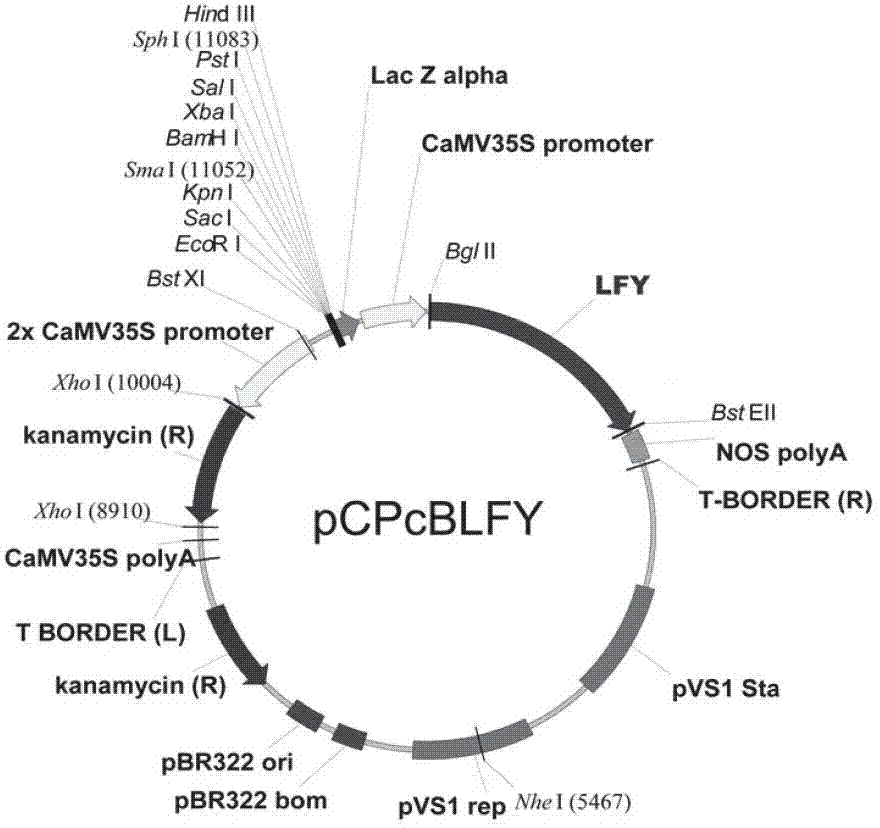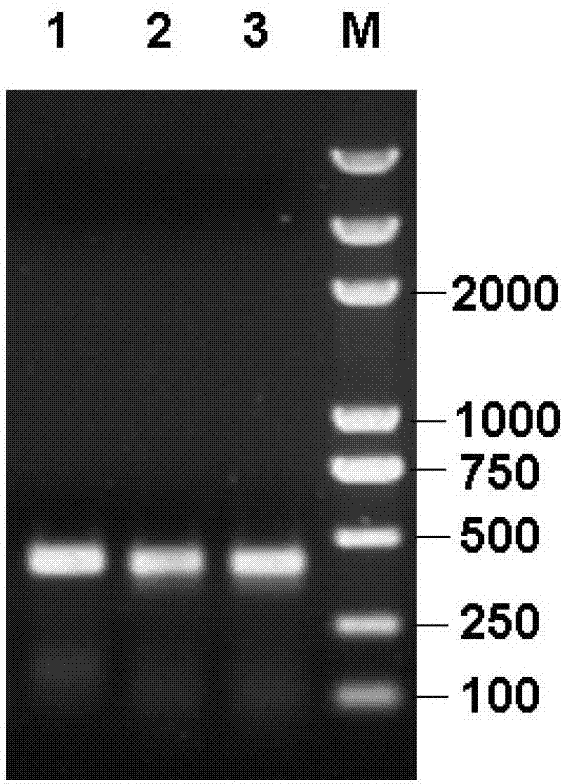Cloning and application of PcBLFY (Pistacia chinensis Bunge blooming gene)
A technology of Pistacia chinensis and genes, applied in the fields of application, genetic engineering, plant genetic improvement, etc., can solve the problems of Pistacia chinensis with long childhood period, low proportion of female plants, and inability to be applied in production
- Summary
- Abstract
- Description
- Claims
- Application Information
AI Technical Summary
Problems solved by technology
Method used
Image
Examples
Embodiment 1
[0196] According to the conserved sequence of cloned model plant LEAFY gene, degenerate primers were designed (forward primer: 5′-GARGTGGCACGTGGSAARAARAA-3′; reverse primer: 5′-CGGAGYTTGGTGGGMACRTACCA
[0197] -3′), using the total RNA of Pistacia chinensis female, male and hermaphroditic plants as templates, RT-PCR amplification was carried out, and a 361bp cDNA sequence was obtained ( figure 1 ), and two gene-specific primers GSP1-1 (primer sequence is 5'-CCTTGAAAACCCTCTCAGTGCATCTGA-3') and NGSP1-2 (primer sequence is 5'-CGCCACGCTCCTTGGCGATGTTCTG-3') for 5'RACE nested amplification , to obtain a 960bp cDNA fragment ( figure 2 ); at the same time, two gene-specific primers, GSP2-3 (primer sequence: 5'-CAGGTCCAGAACATCGCCAAGGAGC-3') and NGSP2-1 (primer sequence: 5'-ATGCCCAACCAAGGTGACAAATCAGG-3') were used to perform 3'RACE nested amplification to obtain 620bp amplified fragment ( image 3 ), the full-length cDNA sequence obtained after splicing was 1570bp.
[0198] Accordin...
Embodiment 2
[0200] Using the difference between the 394th and 603rd base sequences starting from ATG in the coding region (but not limited to these two positions), design the forward primer with the 394th base as the 3' terminal base and the 603rd base The base is the PCR amplification primer of the 3' end base of the reverse primer, which is used to identify the sex of the plant:
[0201] Primer 394F1: 5'-GAGGATTCACGAAGGCGTCACA-3'
[0202] Primer 394F2: 5'-GAGGATTCACGAAGGCGTCACT-3'
[0203] Primer 603R1: 5'-CTGCCTTCAGCATTCTCATCG-3'
[0204] Primer 603R2: 5'-CTGCCTTCAGCATTCTCATCA-3'
[0205] Utilize above two pairs of primers, can carry out sex identification of Pistacia chinensis plant, as following table:
[0206]
[0207] In the table, + indicates that the PCR amplification product can be obtained (for example, a 251bp cDNA amplification fragment can be obtained by RT-PCR), - indicates that the PCR reaction is negative.
Embodiment 3
[0209] Primers were designed (forward primer sequence: 5'-GGAATTCCATATGGATCCTGAAGCATTCA-3'; reverse primer sequence: 5'-CCCAAGCTTGGTCATTCAGTGAGGCTTTAAT-3') to amplify the coding region sequence of PcBLFYF, and inserted into the pET28a prokaryotic expression vector by double enzyme digestion with NdeI / HindⅢ. The constructed recombinant vector was introduced into BL21 strain for expression, and a protein with a size of 43kD was obtained ( Figure 5 ).
PUM
 Login to View More
Login to View More Abstract
Description
Claims
Application Information
 Login to View More
Login to View More - R&D
- Intellectual Property
- Life Sciences
- Materials
- Tech Scout
- Unparalleled Data Quality
- Higher Quality Content
- 60% Fewer Hallucinations
Browse by: Latest US Patents, China's latest patents, Technical Efficacy Thesaurus, Application Domain, Technology Topic, Popular Technical Reports.
© 2025 PatSnap. All rights reserved.Legal|Privacy policy|Modern Slavery Act Transparency Statement|Sitemap|About US| Contact US: help@patsnap.com



